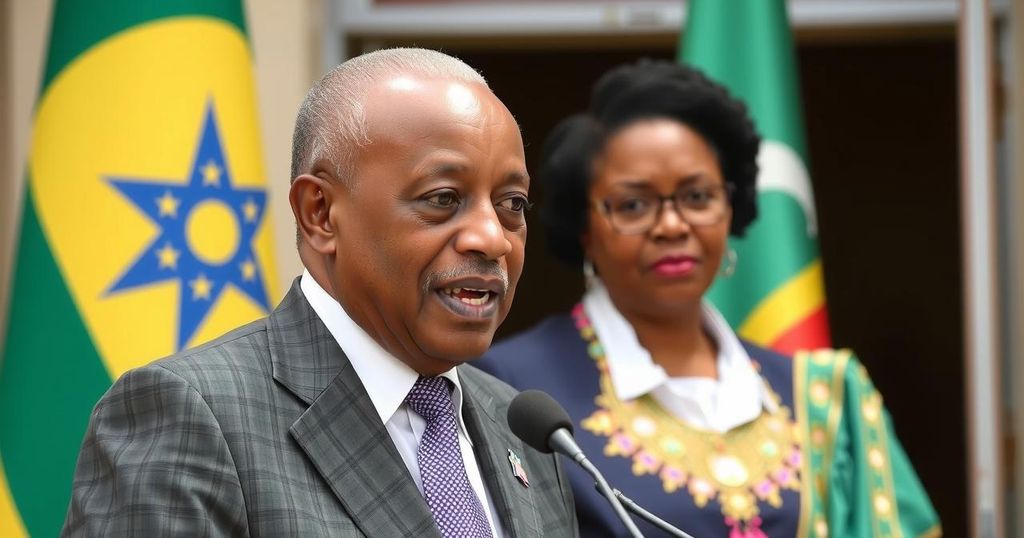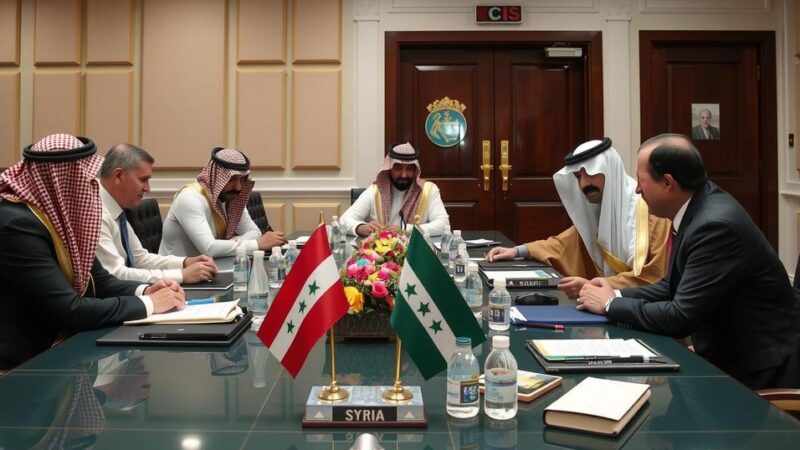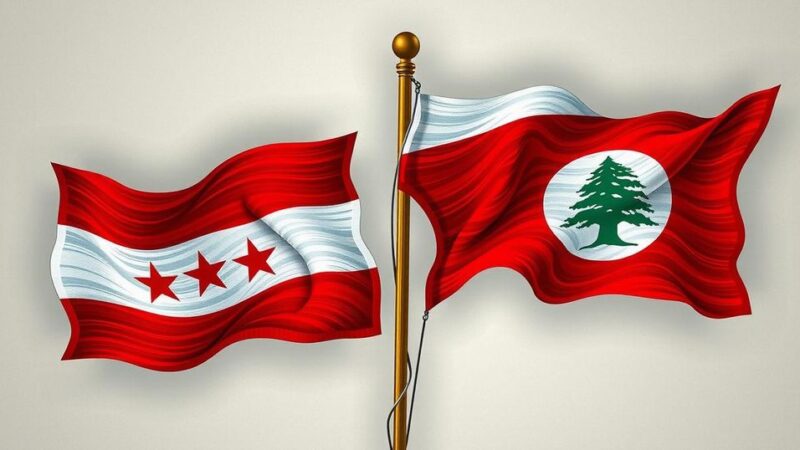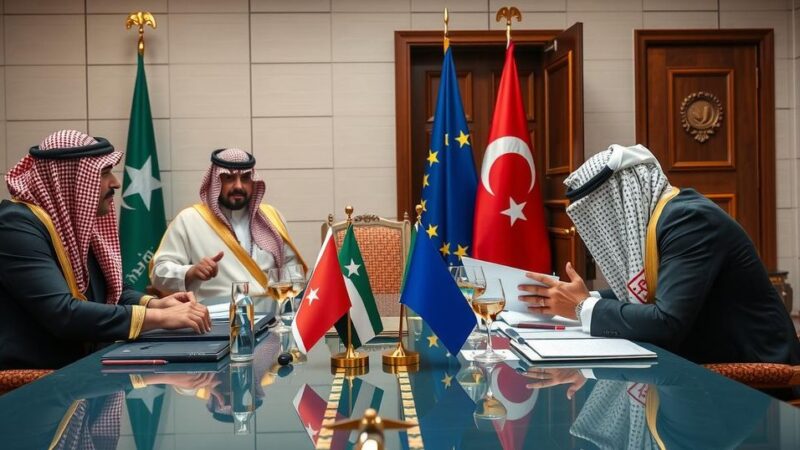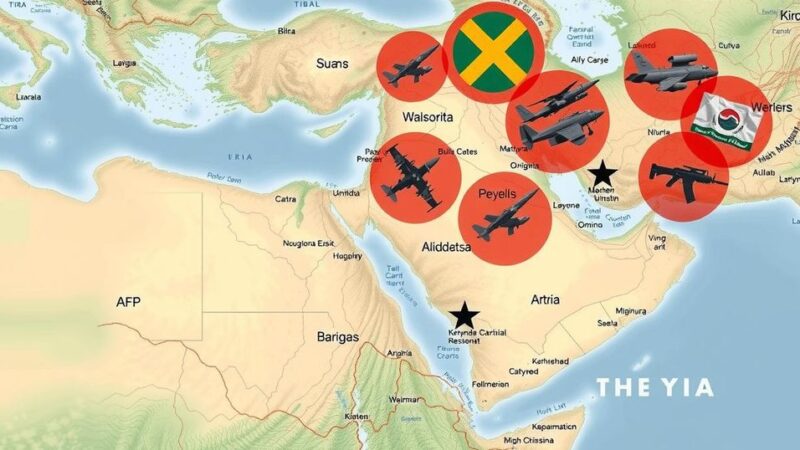Somalia’s President Hassan Sheikh Mohamud will visit Ethiopia on Saturday to reinforce a peace agreement aimed at defusing tensions in the Horn of Africa. Following last month’s mediation by Turkey, both nations seek collaboration despite unresolved issues regarding Ethiopia’s access to the sea and its agreement with Somaliland. Regional dynamics, including Somalia’s alliance with Egypt and Eritrea, add complexity to the ongoing diplomatic efforts.
On Saturday, Somalia’s President Hassan Sheikh Mohamud is set to visit Ethiopia, according to an announcement from his office. This visit comes as both nations aim to strengthen a peace agreement intended to mitigate rising tensions in the Horn of Africa. The roots of these grievances can be traced back to landlocked Ethiopia’s need for maritime access, a necessity that has historically strained its relations with neighboring countries, particularly Somalia.
Tensions escalated last year when Ethiopia entered into a controversial agreement with the breakaway region of Somaliland, seemingly endorsing its independence in exchange for military and port access along the Red Sea, which incited outrage from Somalia. However, a diplomatic breakthrough was achieved last month when President Mohamud and Ethiopian Prime Minister Abiy Ahmed signed a peace deal, mediated by Turkey, aimed at easing these frictions.
The forthcoming visit to Addis Ababa has been described by Mohamud’s office as a demonstration of further commitment to the recent agreements established in Ankara. “This renewed cooperation underscores a new era of collaboration between Somalia and Ethiopia,” the statement read. Despite this positive development, several critical issues remain unaddressed, including the specifics of Ethiopia’s anticipated maritime access and the uncertain status of Ethiopia’s arrangement with Somaliland.
These unresolved tensions were evident during a meeting in Cairo on the same day, where Somalia’s Foreign Minister Ahmed Moalim Fiqi met with his Egyptian and Eritrean counterparts. Together, these nations expressed concerns regarding Ethiopian aspirations, with Egypt’s Foreign Minister Badr Abdelatty insisting that “The Red Sea and its security is subject only to the will of the countries on its coast, and it is absolutely unacceptable for any country not bordering the Red Sea to have a presence, whether military, naval or otherwise.”
As Somalia, Egypt, and Eritrea continue to navigate these complexities, their collective opposition to Ethiopia’s ambitions has led to enhanced military cooperation, exemplified by Egypt’s involvement in the recently launched African Union Support and Stabilization Mission in Somalia (AUSSOM).
This regional alliance underscores the geopolitical tensions prevalent in the Horn of Africa and highlights the intricate balance these nations must maintain moving forward.
The Horn of Africa is characterized by its complex geopolitical relationships, particularly among Somalia, Ethiopia, and Somaliland. With both historical animosities and recent agreements shaping their interactions, these nations grapple with the consequences of Ethiopia’s maritime ambitions and the implications of Somaliland’s quest for independence. The arrival of Turkish mediation introduced new dynamics in their relationships, with hopes for peace now balanced against lingering doubts and regional alliances that complicate the situation further.
In conclusion, President Mohamud’s imminent visit to Ethiopia is a pivotal step towards enhancing diplomatic relations and building on the peace agreement orchestrated with Turkish mediation. However, unresolved issues regarding Ethiopia’s maritime access, the fate of its agreement with Somaliland, and the shared regional concerns expressed by Somalia, Egypt, and Eritrea present ongoing challenges. The evolving dynamics in the Horn of Africa remain fraught with tension, suggesting that any progress towards stability will necessitate careful navigation of these complex relationships.
Original Source: www.citizen.digital

